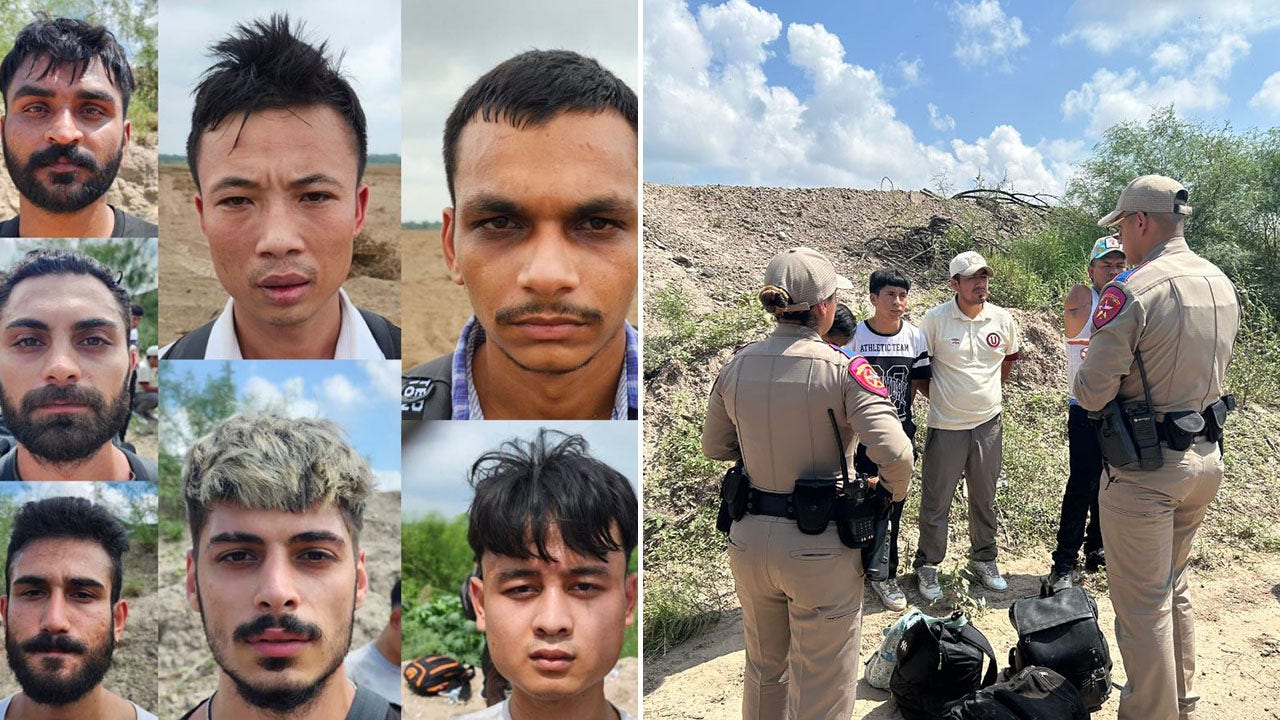Texas State Troopers Encounter Illegal Immigrants Near Southern Border
In a significant operation on Friday, Texas state troopers encountered a group of 36 illegal immigrants near the southern border, highlighting ongoing issues related to immigration and border security. This incident took place in the border town of Normandy, where the troopers discovered a diverse group of migrants, including individuals from Turkey who had reportedly paid $12,000 each to cross into the United States. Their goal? To meet a "sponsor" in New Jersey.
The Discovery in Normandy
The Texas Department of Public Safety (DPS) reported that the troopers found the group while conducting routine patrols in the area. Among the 36 migrants were individuals from various countries, including Brazil, Peru, Ecuador, Nicaragua, the Dominican Republic, and South Africa. In a swift response, authorities arrested 15 of these migrants on suspicion of criminal trespass, underscoring the legal ramifications of their actions.
Special Interest Migrants
Among the group were what the Department of Homeland Security (DHS) refers to as "special interest" illegal immigrants. This designation applies to non-U.S. citizens whose travel patterns may pose a potential national security risk. The group included individuals from Turkey, Pakistan, India, and Vietnam. It’s important to clarify that being labeled as "special interest" does not imply that these individuals are terrorists; rather, it indicates that their travel and behavior warrant further scrutiny due to possible links to nefarious activities, including terrorism.
Recent Trends in Migration
DPS Lt. Chris Olivarez noted that in the last 48 hours alone, troopers had encountered eight special interest immigrants from five different countries in the rural Normandy area. This trend raises concerns about the increasing complexity of immigration patterns and the potential risks associated with them.
The Turkish Connection
Among the Turkish migrants, one 26-year-old man shared insights into how they managed to cross the border illegally. He revealed that they had utilized social media platforms like Telegram and Instagram to connect with a network that facilitated their journey. This network reportedly helped them navigate the challenges of illegal entry into the U.S., with a promise of support from a sponsor in New Jersey.
In bodycam footage released by the DPS, the man explained, "They take care of our expenses and everything while we are in there legally." This statement sheds light on the organized nature of some illegal immigration efforts and the reliance on sponsors who may assist migrants once they reach the U.S.
The Role of U.S. Border Patrol
Following the encounter, 21 of the 36 migrants were handed over to U.S. Border Patrol for further processing. This transfer is part of the standard procedure for handling illegal immigrants apprehended at the border, ensuring that they are processed according to U.S. immigration laws.
Broader Implications
The incident in Normandy is a microcosm of the larger immigration challenges facing the United States. As state troopers and federal agencies grapple with the complexities of illegal immigration, the involvement of organized networks and the designation of special interest migrants complicate the narrative surrounding border security. The ongoing dialogue about immigration policy, national security, and humanitarian concerns continues to evolve, reflecting the multifaceted nature of this pressing issue.
Conclusion
The encounter with the group of illegal immigrants in Texas serves as a reminder of the ongoing challenges at the southern border. With diverse backgrounds and complex motivations, these individuals represent a broader trend that requires careful consideration and response from authorities. As the situation develops, the implications for immigration policy and national security remain a topic of significant importance.
